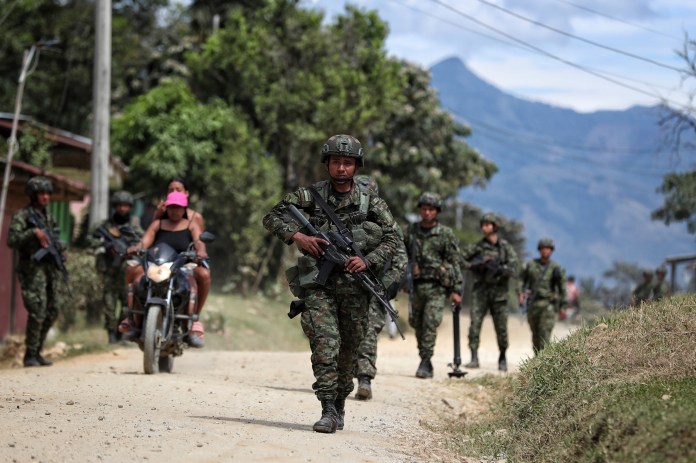


The Trump administration added Colombia to a list of countries failing to cooperate in the war on drugs for the first time in nearly 30 years.
The designation reflects the deteriorating relations between the United States and one of its closest Latin American allies. Trump’s vision has repeatedly clashed with that of the left-wing president, Gustavo Petro, whose soft-handed approach to cocaine production has failed to stop the skyrocketing of cocaine cultivation. In a presidential determination, Trump laid the deterioration in relations squarely at Petro’s feet.
Recommended Stories
- Taiwan leaders flaunt de facto sovereignty as Kuomintang warns rhetoric will provoke Chinese invasion
- Conor McGregor ends long-shot bid for Irish president
- South Korea reviewing possible human rights abuses in US raid at Hyundai plant

“The failure of Colombia to meet its drug control obligations over the past year rests solely with its political leadership,” Trump said, bashing Petro’s government for not decreasing production and criticizing his “failed attempts to seek accommodations with narco-terrorist groups.”
In a televised press conference, Petro complained that the country’s problems with drugs were the U.S.’s fault.
“What we have been doing is not really relevant to the Colombian people,” he said of Colombia’s anti-drug efforts. “It’s to stop North American society from smearing its noses” in cocaine.
The country is the world’s largest exporter of cocaine, providing 90% of the cocaine sold in the U.S. every year, according to the Associated Press.
The Colombian government has long been a close partner with the U.S. in its war on drugs. It was last added to a list of countries not in cooperation with the U.S. in the drug war, through a process known as decertification, in 1997. The process is a major blow to targeted countries so is used sparingly.
“Decertification is a blunt tool and a huge irritant in bilateral relations that goes well beyond drug issues and makes cooperation far harder in any number of areas,” Adam Isacson, a security researcher at the Washington Office on Latin America, told the Associated Press. “That’s why it’s so rarely used.”
The U.S. stopped short of cutting off aid, but the designation will have negative cascading effects.
The United Nations found that cocaine cultivation in Colombia increased every year from 2013 to 2023. This includes massive increases, such as a 40% increase from 2020 to 2021 and 53% increase from 2022 to 2023. It grew again 10% last year, according to Bloomberg.
Colombia now produces six times as much cocaine as it did in 1993, the height of the U.S.’s public interest in the drug production of the country, when infamous drug lord Pablo Escobar was killed. The country now produces much more than Peru and Bolivia combined.
Petro has scaled back efforts to target drug supply, instead trying to solve the issue through social programs.
COLOMBIAN PRESIDENT CLAIMS COCAINE IS ‘NO WORSE THAN WHISKEY’ AND SHOULD BE ‘SOLD LIKE WINE’
The Colombian president is known for his controversial views on cocaine, suggesting in February that cocaine is no worse than whiskey.
“Cocaine is illegal because it is made in Latin America, not because it is worse than whiskey,” Petro said. “Scientists have analyzed this — cocaine is not worse than whiskey.”
